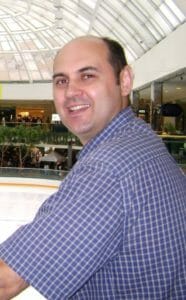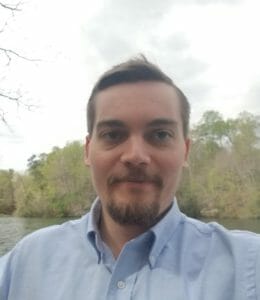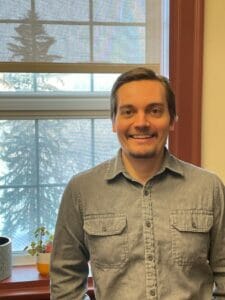TEMERTY POST DOCTORAL FELLOWSHIP
The Temerty Post Doctoral Fellowship in Holodomor Studies at the University of Alberta, organized by the Canadian Institute of Ukrainian Studies together with HREC, supports the study of and expansion of knowledge about the Holodomor. The Fellows may represent disciplines including but not confined to history, political science, anthropology, sociology, and literature, as well as famine studies, genocide studies, and rural studies. Interdisciplinary and comparative projects are considered. The Temerty Fellow may be co-hosted at the University of Alberta by one of the following departments: Anthropology, History and Classics, Modern Languages and Cultural Studies, Political Science, and Sociology.
Qualified applicants have received a PhD (or Candidate of Sciences degree) within five years of the time of application. In addition to working on a research project, the Temerty Fellow participates in the programming and activities of HREC, including the organization of a workshop or conference in the area of her/his research. In addition, the award supports a research trip to Toronto. The duration of the fellowship is one year with the possibility of renewal.
The Temerty Post-Doctoral Fellowship in Holodomor Studies is made possible by funding from the Temerty Foundation.
- Temerty Post-doctoral Fellowship in Holodomor Studies, 2021, Eduard Baidaus

Dr. Eduard Baidaus took up his position as the first Temerty Post-doctoral Fellow in the fall of 2021. The Temerty Post-doctoral Fellowship in Holodomor Studies was established in 2021 with the aim of supporting scholars in expanding what is known about the Holodomor. Dr. Baidaus is studying how the Great Famine unfolded in regions located near the Bessarabian border in southwestern Soviet Ukraine, working from unpublished materials from archives in Romania and Moldova. One focus of his work are the refugees who escaped Ukraine to Romania, looking at how they managed to escape and their fates once they crossed the border. His research considers what Romanian intelligence and other government institutions found out from the refugees, and what this information reveals about the Holodomor. Besides diplomatic reports and Romanian government records, Dr. Baidaus’ sources include newspapers and periodicals. Ultimately the results of his research will be integrated into a book, tentatively titled The Holodomor in the Ukrainian-Romanian Border Region: An Examination of Romania’s Response to the Famine. With the support of the Temerty Post-doctoral Fellowship in Holodomor Studies, Dr. Baidaus’ work promises to make an original contribution to Holodomor and famine studies, filling a void in the scholarship through research and analysis of archival materials and Romanian-language scholarship largely unknown in Western academia.
- Temerty Post-doctoral Fellowship in Holodomor Studies, 2022-2023, Henry Prown

Dr. Henry Prown, who was recently awarded a PhD in American Studies from the College of William & Mary, is a specialist in the relationship between Stalinism and the American media during the Great Depression. In particular, he studies the centrality of press-oriented agitation and propaganda efforts to the political strategy of the Communist Party of the United States. Through his examination of previously classified Soviet archives, he has documented the existence of a collaborative, Moscow-based public relations campaign aimed at American audiences, including denial of the Holodomor. As the Temerty Postdoctoral Fellow, Dr. Prown will concentrate his research on the suppression, manipulation, and misinterpretation of information about the Holodomor at the time of its initial international reception. “In the current climate of journalistic and governmental concerns over ‘Fake News’ and ‘misinformation,’ he said, “I believe there is much to learn from a re-examination of these long forgotten debates over the events that informed Soviet/American discourse and relations in the mid-20th century.”
- Temerty Post-doctoral Fellowship in Holodomor Studies, 2023-2024 Henry Prown

Dr. Prown was the recipient of the 2022-23 fellowship, which has been extended an additional year. Dr. Prown is a specialist in the relationship between Stalinism and the American media during the Great Depression and received his PhD in American Studies from the College of William & Mary.
“Henry Prown has been impressively productive in his first year as the Temerty Post-Doctoral Fellow,” said Frank Sysyn, academic advisor to HREC. Dr. Prown submitted a book proposal based on his dissertation to McGill-Queens Press and has been contracted to develop it into a full-length monograph. His article “Holodomor Denial in American Communist Media,” will be included in a collection based on presentations given at the HREC-sponsored conference
“The Holodomor in Global Perspective” (Cambridge University). Henry made a number of presentations, in person and virtual, including at the Pilecki Institute‟s “Genocidal Crimes of Imperialist Regimes” conference (Warsaw), the annual meeting of the Australasian Association for Communist and Post-Communist Studies (Sydney), and the Triennial Congress of the Ukrainian Canadian Congress (Winnipeg), and in the coming months, will speak at the conference of the British Association for Slavonic and East European Studies and the conference “Rediscovering the Plurality of Socialism and Communism” (University of Montreal).
In addition, Henry has been teaching a course titled “Communism around the World” offered through the History, Classics, and Religion department at the University of Alberta. The course explores the impact and influence of the Bolshevik movement in Eastern Europe, China, the US, and Russia. “My goal is to engage students in the study of events like the Holodomor not only through the lens of leaders in the Kremlin but also through the eyes of non-Russian witnesses and Ukrainians themselves,” he said. Henry is working with previously classified Soviet archives to document the existence of a collaborative, Moscow-based public relations campaign aimed at American audiences, including denial of the Holodomor. In his second year as the Temerty Post-Doctoral Fellow in Holodomor Studies, Henry plans to prepare his book for publication and to continue to map the complex media ecosystem of 1930s America as it relates to coverage of the USSR and specifically to reporting on the Holodomor period.


